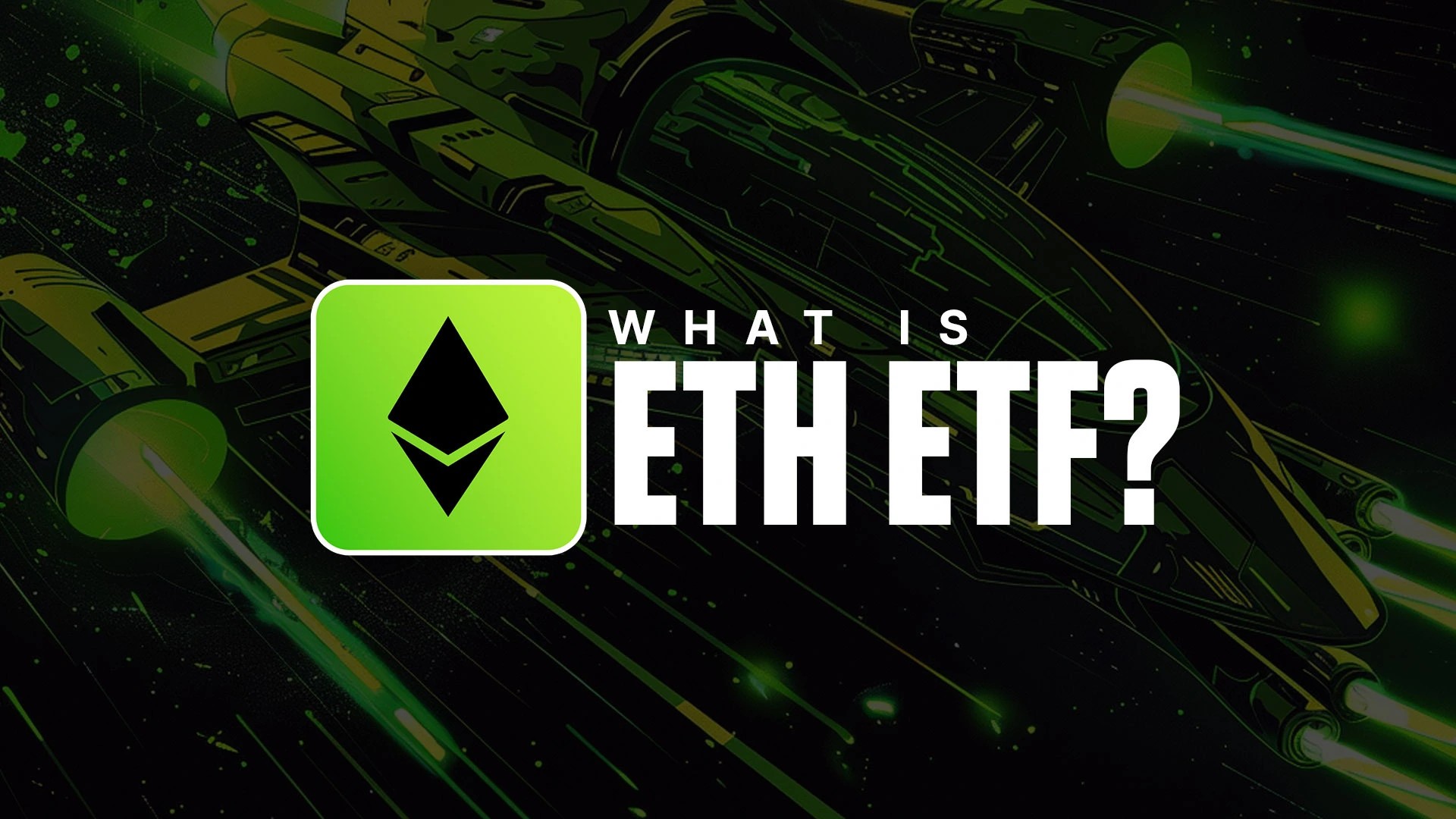Live Ethereum ETF Inflows Tracker
Track the latest Ethereum ETF inflows, holdings, and volume with our real-time data tracker. Stay updated with the most accurate ETH ETF information.
Total ETH held in ETFs and total volume
ETF inflows vs price dynamics
Name | ETH Holding | ETH change 1d % | ETH change 7d | ETH change 7d % | AUM | Total volume |
|---|---|---|---|---|---|---|
iShares Ethereum Trust ETF ETHA | 3.26M | 0% | -71.31K | -2.14% | $6.77B | $1.12B |
Grayscale Ethereum Staking ETF Shares ETHE | 1.3M | -0.860% | -20.28K | -1.53% | $3.46B | $151.59M |
Grayscale Ethereum Staking Mini ETF Shares ETH | 477.43K | 0% | -13.73 | 0% | $1.27B | $231.21M |
Fidelity Ethereum Fund FETH | 427.06K | -2.27% | -7.01K | -1.62% | $1.34B | $90.69M |
Bitwise Ethereum ETF ETHW | 125.79K | 4.77% | 7.85K | 6.66% | $259.12M | $32.81M |
VanEck Ethereum ETF ETHV | 52.29K | 0% | 2.19K | 4.37% | $107.72M | $13.13M |
Franklin Ethereum ETF EZET | 22.69K | 28.96% | 3.49K | 18.16% | $41.40M | $3.09M |
21Shares Core Ethereum ETF CETH | 10.94K | 0% | 0 | 0% | $39.14M | $10.49M |
Invesco Galaxy Ethereum ETF QETH | 9.48K | -2.57% | 1.38K | 16.97% | $42.50M | $4.16M |
21Shares Ethereum ETF TETH | 9.14K | 0% | 0.7331 | 0.010% | $17.18M | $5.6M |
ProShares Ether ETF EETH | 495.44 | 0% | -35.41 | -6.67% | $51.78M | $6.97M |
ARK 21Shares Active Ethereum Futures Strategy ETF ARKZ | 107.28 | -5.7% | -8.79 | -7.58% | $6.79M | $363.49K |
Bitwise Trendwise Ether and Treasuries Rotation Strategy ETF AETH | 25.2 | 0% | -16.26 | -39.21% | $2.36M | $123.42K |
What is an Ethereum ETF?
An Ethereum ETF (Exchange-Traded Fund) is a financial product traded on stock exchanges that allows investors to gain exposure to Ethereum without directly owning the cryptocurrency. These funds track the price of Ethereum in the wider crypto market, enabling investors to buy shares representing ownership of Ethereum assets held by the fund.Ethereum ETFs simplify the investment process by eliminating the need for cryptocurrency wallets and private keys, making it more accessible for traditional investors to participate in the Ethereum market.

How Ethereum ETFs Work
The ETF would hold either Ethereum directly or Ethereum futures contracts, using them to track the price of Ethereum. Investors can buy and sell shares of the ETF on traditional stock exchanges, just as they would with companies' stocks.Ethereum ETFs trade on traditional stock exchanges, following the same trading schedules as regular ETFs. This means that Ethereum ETFs are not traded 24/7 like the crypto market but are instead subject to the trading hours of the exchange on which they are listed.
The financial institutions creating Ethereum Futures ETFs charge management fees to cover the costs associated with managing the fund. These fees are an important part of the fund's expense structure and are typically expressed as a percentage of the total assets under management (AUM).
The management fees primarily compensate the fund’s management team for their role in trading Ethereum futures contracts, monitoring market trends, and making strategic decisions to maximise returns. These fees also cover administrative tasks, such as regulatory compliance, accounting, reporting, and marketing related to the fund.
Types of Ethereum ETFs
The main types of crypto ETFs are spot ETFs and futures ETFs. The key difference between an Ethereum spot ETF and an Ethereum futures ETF is the type of exposure they offer to Ethereum.- Ethereum Spot ETF: This is an exchange-traded fund that directly holds Ethereum as the underlying asset. The value of the ETF shares is directly tied to the current market price of Ethereum.
- Ethereum Futures ETF: This is an exchange-traded fund that invests in Ethereum futures contracts instead of holding Ethereum directly. Futures contracts are agreements to buy or sell Ethereum at a predetermined price on a specified future date.
Benefits of Investing in ETFs
Here are some of the benefits of investing in ETFs.- Accessibility and Convenience Investors can access Ethereum through traditional brokerage accounts without needing technical knowledge of cryptocurrency wallets.
- Diversification and Risk Management ETFs offer diversification benefits, allowing investors to hedge against Ethereum’s volatility by spreading risk across multiple assets.
- Regulatory Oversight Ethereum ETFs are regulated financial products, providing investors with greater security and oversight compared to directly holding Ethereum.
- Liquidity Ethereum ETFs are traded on major stock exchanges, offering high liquidity and ease of buying and selling compared to direct Ethereum transactions.
Top Ethereum ETF Stocks
An Ethereum ETF stock is a financial product that enables investors to gain exposure to Ethereum's price movements without having to buy or hold the cryptocurrency directly. Some of the leading products include:- BlackRock Ethereum ETF (IETH)
- Grayscale Ethereum Trust (ETHE)

Grayscale Ethereum Trust (ETHE)
- Type: Digital currency investment product
- Features: Allows individual and institutional investors to gain exposure to Ethereum through shares, removing the need to secure and store digital assets.
- Management: Offers other exchange-traded products, tracking Bitcoin, Bitcoin Cash, and Litecoin, among others.
- Unique Aspects: Provides a traditional investment vehicle, making it easier for traditional investors to access Ethereum.

Fidelity Wise Origin Ethereum Fund (FETH)
- Type: Exchange-traded fund
- Investment Strategy: Invests in long Ethereum, short USD currency
- Features: Offers exposure to the daily USD spot price of Ethereum using an Ethereum price feed. Managed with Fidelity’s in-house storage services.
- Security: Benefits from the security and expertise of a well-established financial institution like Fidelity.
What are Ethereum ETF Inflows Trackers?
An Ethereum ETF inflow tracker records data on the inflow and outflow of funds from the ETFs. Tracking the inflows and outflows of an Ethereum ETF can provide useful information about investor sentiment and market trends regarding Ethereum.Understanding ETF Inflows and Outflows
- Inflows and Outflows: These refer to the movement of money into and out of ETFs during a trading period. Inflows occur when investors purchase new shares of a fund, adding money to it. Conversely, outflows happen when investors sell shares, withdrawing money from the fund.
- Net ETF Inflow: This occurs when more money flows into the fund than out, providing fund managers with excess cash for further investment.
- Net ETF Outflow: This occurs when more money is withdrawn from the fund than invested.
The Importance of Tracking Inflows and Outflows
Tracking Ethereum ETF flows is vital for investors, as it reveals the net movement of cash into a fund rather than just performance. ETF fund flows are one of the main ways investors gauge market sentiment, helping determine the suitability of an investment. These flows can highlight trends and potential opportunities or risks in the market.For example, significant inflows into an Ethereum ETF may indicate growing confidence in Ethereum’s future price increase, while outflows could signal concerns about possible price drops or market volatility.
Ethereum ETF Tracker FAQs
How often is the Ethereum ETF inflow data updated?
Inflow data for Ethereum ETFs is typically updated daily, providing investors with real-time insights into the money movement within ETFs. This frequent updating allows investors to track the latest trends and make informed decisions based on current data.
Why is tracking ETF inflows important?
Tracking Ethereum ETF inflows is important because it helps gauge investor sentiment and market trends. Significant inflows often suggest increased investor confidence and interest in Ethereum. On the other hand, large outflows could indicate a loss of confidence or a shift in investment strategies.
How can I use the inflow data for investment decisions?
Investors can use Ethereum ETF inflow data to identify market trends, investor sentiment, and potential investment opportunities or risks. For instance, consistent inflows into an Ethereum ETF might indicate a positive trend, suggesting that it could be a good time to invest. On the other hand, large outflows might indicate a negative trend or potential market correction.
Where does the data come from?
Inflow data is sourced from ETF providers, financial market platforms, and regulatory disclosures, ensuring its accuracy and transparency. These sources compile data from various transactions, providing a comprehensive overview of money movements within the ETFs.
What is the BlackRock Ethereum ETF?
The BlackRock Ethereum ETF (IETH) is a spot Ethereum ETF that offers a regulated way for investors to gain exposure to Ethereum's price movements without directly owning the cryptocurrency. It holds actual Ethereum as its underlying asset, providing a secure and convenient investment option. This ETF is managed by BlackRock, one of the world's largest and most trusted asset management firms, ensuring robust management and oversight.

